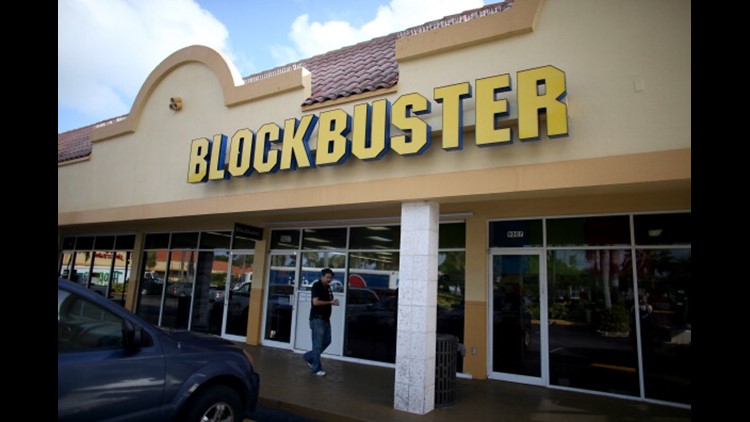Payless ShoeSource has recently been a topic of discussion after filing for Chapter 11 bankruptcy on Tuesday. The retailer announced the decision it would be immediately closing nearly 400 stores, including some in Sacramento.
Consumers have helped play a major role with trends controlling the ever evolving market, and retailers struggling to keep up find themselves with a declining or obsolete consumer base.
Payless is not the first and won't be the last, but what other notables retailers have done the same?
Here's a list of five other notable stores who filed for bankruptcy in the last 10 years:
1. Blockbuster
The ability of streaming through the internet on Netflix, Hulu, YouTube and etc. (or rental entities like Redbox) made this once highly popular video rental chain archaic. Blockbuster was the Netflix of its era, but the company eventually filed for bankruptcy in September 2010 after a few years of trying to save the company.
In federal bankruptcy court the Chapter 11 bankruptcy petition listed that the company had $1.02 billion in assets and $1.46 billion in debt, according to the New York Times. DISH Network did buy Blockbuster for approximately $320 million in bankruptcy auction proceedings and closed almost all remaining locations.
Though this video chain is pretty much gone, its 25-year run of memories will last forever.
2. RadioShack
Before there was an Amazon, Apple, Walmart and others, there was RadioShack.
This electronic retailer has been a powerhouse for nearly a century (96 years), but as electronics have risen seamlessly to the forefront, consumers have gone elsewhere to get technologic devices. Like Payless, RadioShack recently filed for bankruptcy in 2017, early March, making it the companies second time in three years - they also filed in February 2015.
In March, the retailer announced it would be closing 187 more stores which is about 9 percent of its 1,943 locations and about 1,850 of 5,900 employees were expected to be affected by the decision, according to USA Today. USA Today also stated that in the bankruptcy filing, RadioShack said its assets and debts totaled between $100 million and $500 million. Among their debts included about $63 million in trade debt, liens of $25.5 and $39.7 million, and unpaid rent of just over $10 million.
RadioShack announced a deal with Sprint in 2016, so despite filing for bankruptcy they will have a third opportunity to try and get it right.
3. American Apparel
This clothing retail chain filed for bankruptcy in October 2015 and more recently again in November 2016.
In the business of teen fashion, American Apparel has to compete with retailers like H&M and Forever 21 who are dominating that niche space.
A Canadian clothing manufacturer Gildan Activewear agreed to a $66 million deal to acquire intellectual property assets and inventory from American Apparel, according to USA Today. This would include the chance to maintain some or all of the Los Angeles production and distribution operations for the company.
Stores are said to remain open while the company continues to pursue a sale of those operations.
4. Wet Seal
Like American Apparel, the Southern California based company operates in the teen fashion space.
Wet Seal first announced that it would be closing about two-thirds of its stores and then filed for bankruptcy later in February 2017- this was their second in three years after filing in 2015. The teen apparel retailer closed all of its stores after it was unable to find a buyer, according to Fortune.
Wet Seal listed their assets between $10 million to $50 million and its liabilities between $50 million to $100 million.
5. Tower Records
For any Sacramento-area native this retail music chain might sound very familiar. Once a prominent hotbed for CD's, the first time a Tower Records was seen was in Sacramento and its headquarters is based in the city as well.
How Blockbuster was the Netflix of its era, you could say that Tower Records was the ITunes or any other music streaming service of its time. Unfortunately, the music retailer filed for bankruptcy in 2004 and then closed its remaining U.S. stores in 2006 as streaming began to take over the music market making CD's obsolete.
Though it does currently live as an online music store, consumers of the CD era will always have the memories of physically going in a store like Tower Records to buy CD's from this music retailer.
Other notable retailers who have filed for bankruptcy before include: PacSun, Circuit City, KB Toys, Eddie Bauer and Mervyn's.
Some of these stores have continued business despite filing for bankruptcy while others have closed all together. One thing for certain is that as the times and consumers interests rapidly change, so will the value of certain stores.



